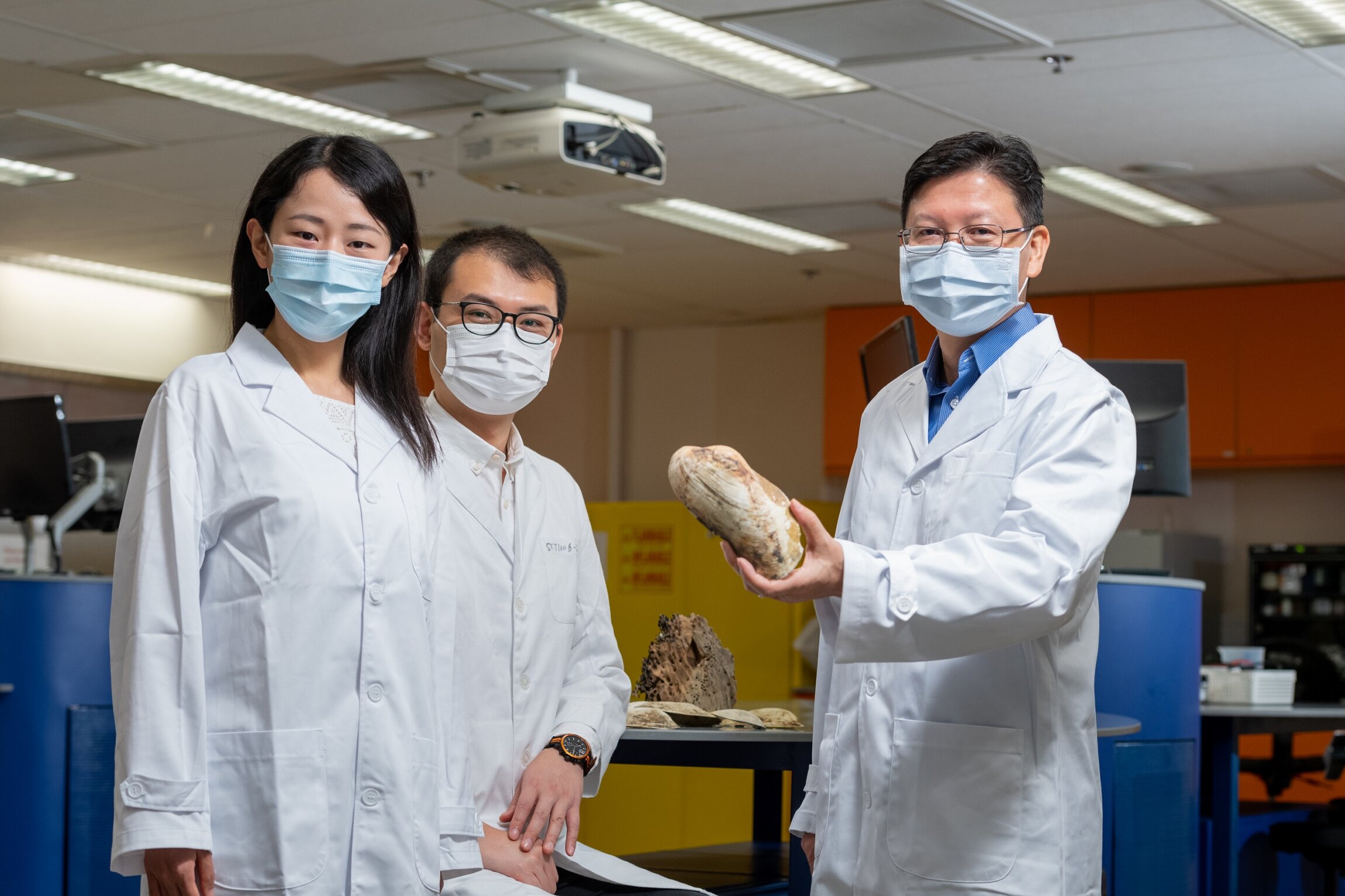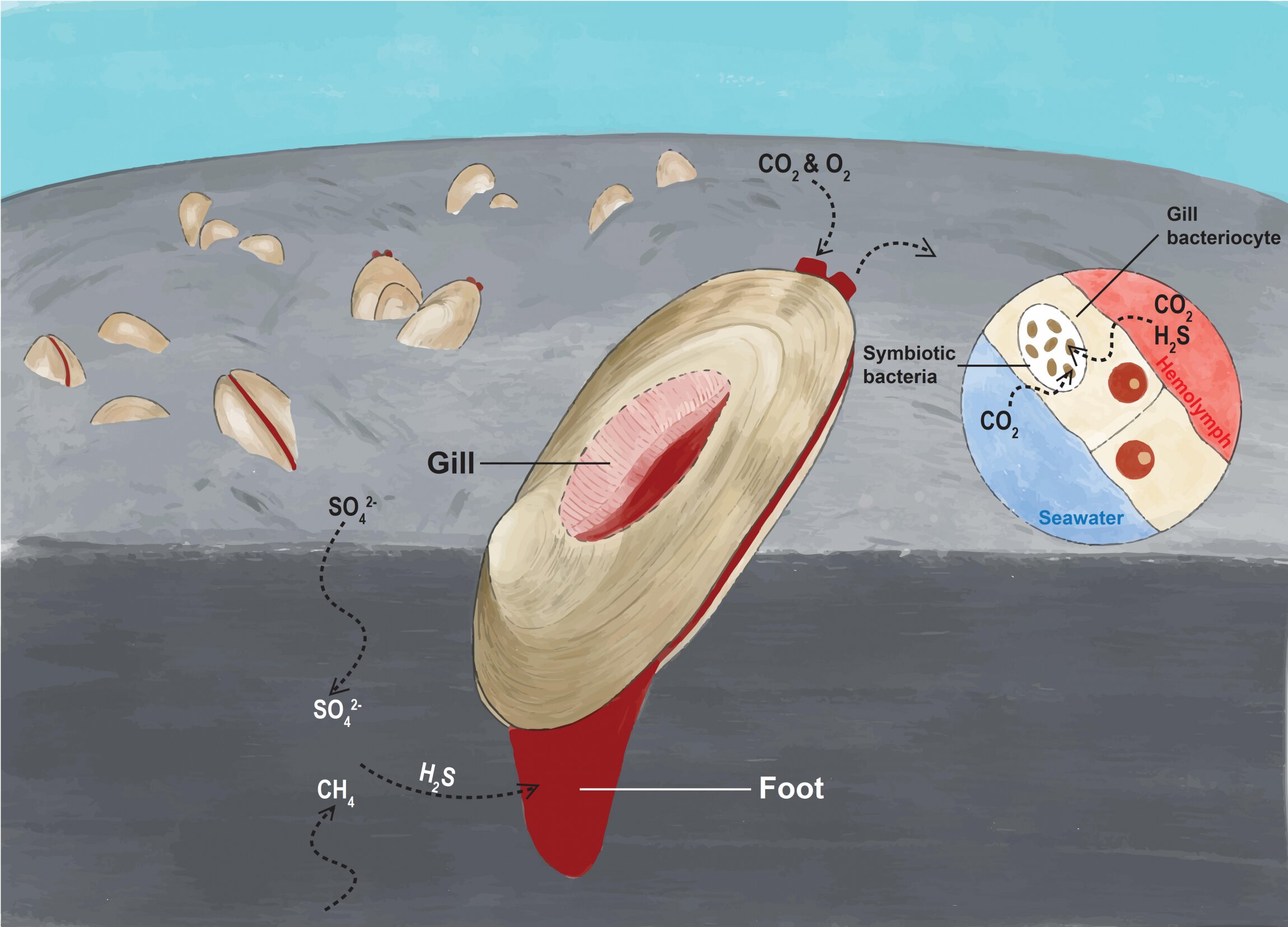
HKBU-led research unlocks the genomic secrets of organisms that thrive in extreme deep-sea environments
29Mar

Professor Qiu Jianwen (right) and his HKBU research team member Dr Ip Chi-ho (centre) and Dr Xu Ting collect the clam specimens at 1,360 metres below the sea level from the South China Sea.
A study led by scientists at Hong Kong Baptist University (HKBU) has decoded the genomes of the deep-sea clam (Archivesica marissinica) and the chemoautotrophic bacteria (Candidatus Vesicomyosocius marissinica) that live in its gill epithelium cells. Through analysis of their genomic structures and profiling of their gene expression patterns, the research team revealed that symbiosis between the two partners enables the clams to thrive in extreme deep-sea environments.
The research findings have been published in the academic journal Molecular Biology and Evolution.
Please click here for details.

Professor Qiu Jianwen (right) and his HKBU research team member Dr Ip Chi-ho (centre) and Dr Xu Ting collect the clam specimens at 1,360 metres below the sea level from the South China Sea.





